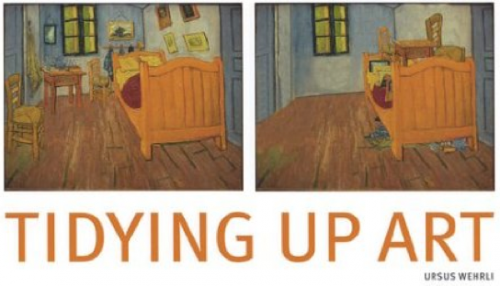Vincent van Gogh was born 158 years ago on 30 March 1853 in Groot-Zundert, a village in the southern Netherlands. He died, largely unknown, at the age of 37 from a self-inflicted gunshot wound. Today, he is widely regarded as one of the most important contributors to the foundation of modern art.
For his birthday we found this gem of digital artist Philip Scott Johnson who has morphed Vincent van Gogh’s self portraits into this great video.
Meanwhile swiss comedian and cabaret artist Ursus Wehrli has tidyed up the artist’s bedroom and has given a very entertaining TED Talk about his project Tidying Up Art.
However, due to time and self inflicted gun shots, visiting van Gogh today should bring you to Auvers-sur-Oise next time you come to France. Happy Birthday, Vincent van Gogh!




